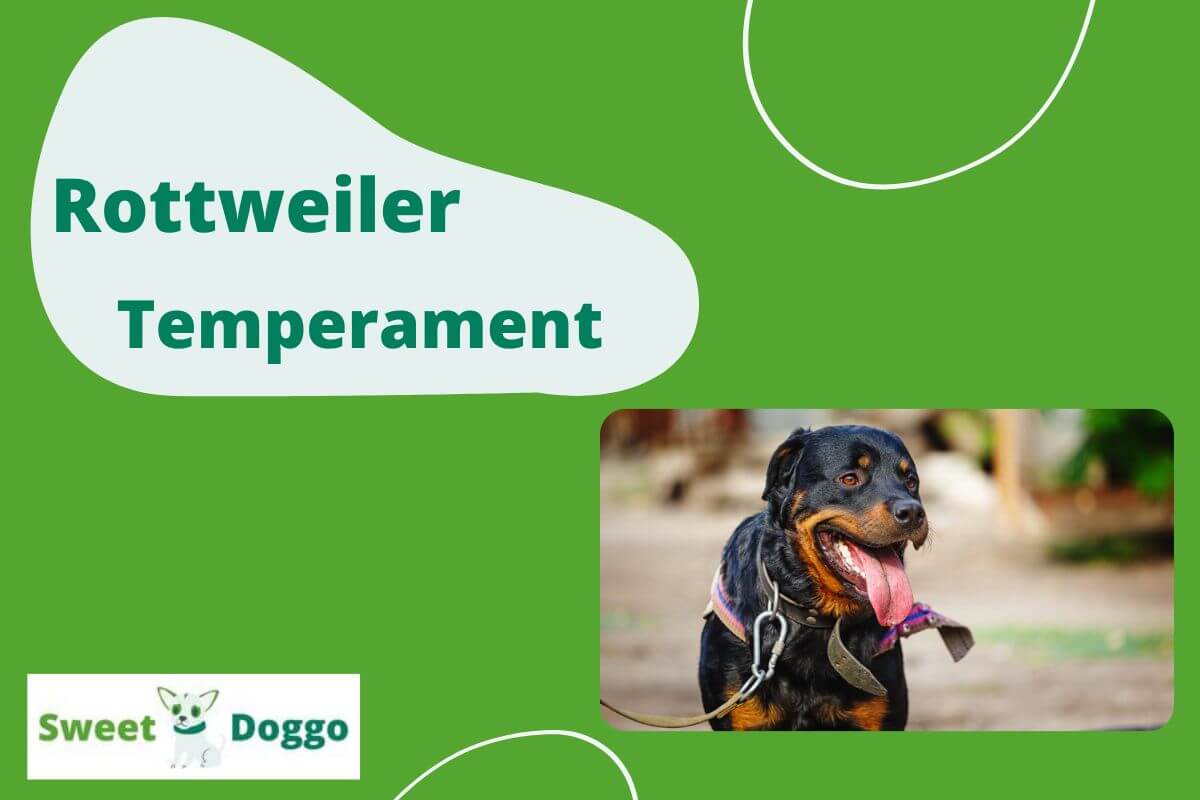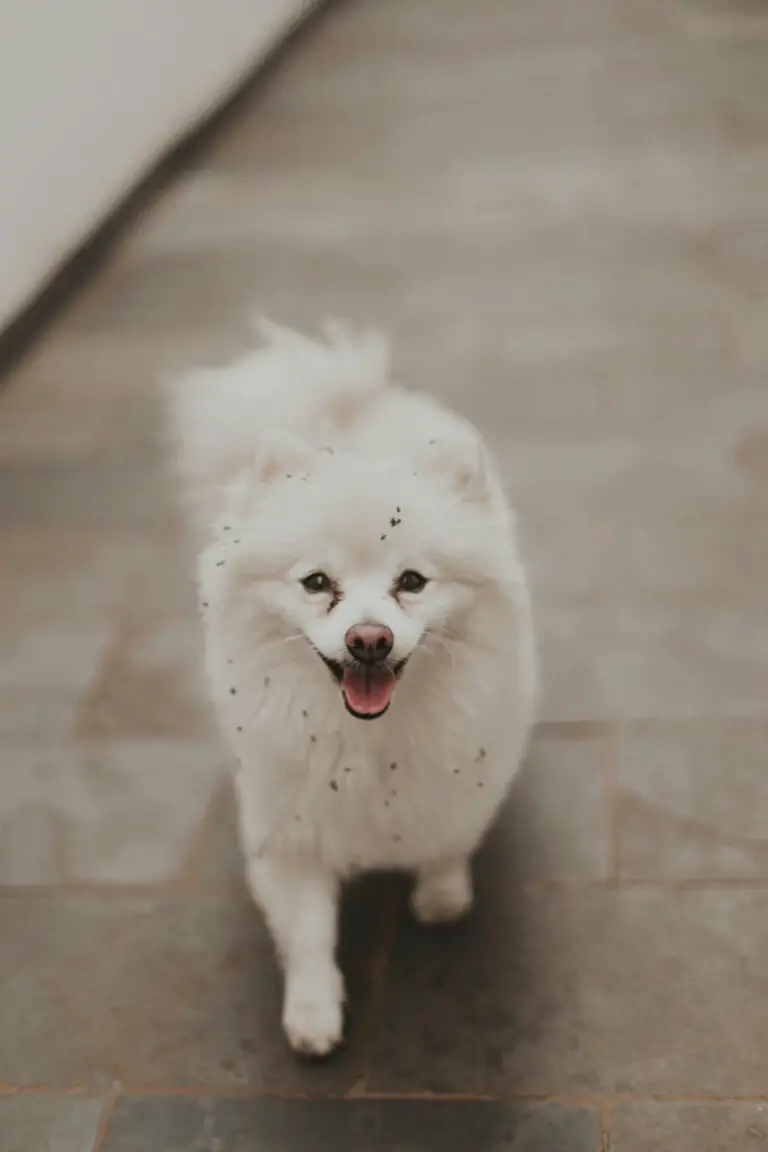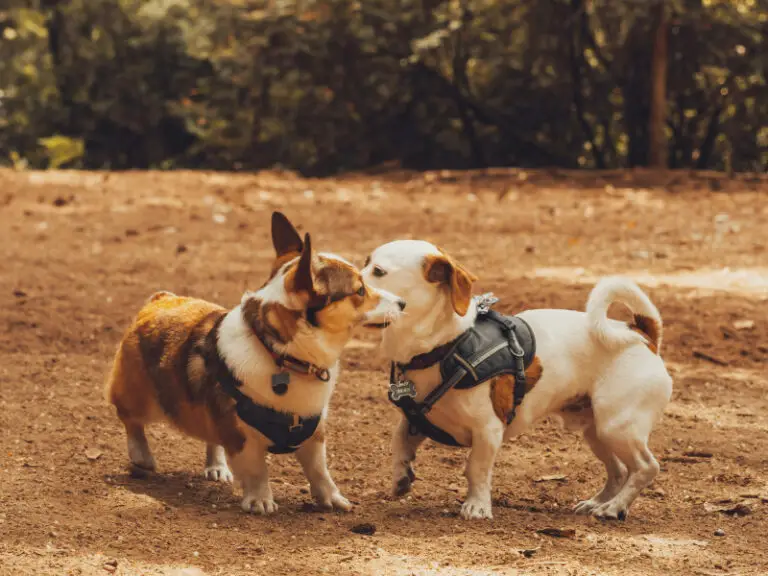Table of Contents
Rottweiler temperament
Robust, muscular, intelligent, and dynamic, the Rottweiler is defined as a mastiff dog with a loving temperament, as well as being firm and protective. But the truth is that this breed usually enjoys a bad reputation. Is he really an aggressive dog? What is the true character of the Rottweiler?
Keep reading below to learn about the Rottweiler temperament, main traits of their personality, what differences exist between the behavior of the male and female Rottweiler, what are the most common human errors, among other considerations to take into account.
Discovering the true personality of the Rottweiler
It is no secret to anyone that this dog is not always a reason for praise or admiration. You have probably heard that Rotties can be very rough and aggressive, but while these traits can be seen in some Rottweilers, the truth is that they do not apply to most cases.
As an owner, you should know that the personality of each dog depends largely on its education, how it has been raised, and the temperament of its parents. Regardless of breed, misbehavior is often seen in poorly bred puppies who have not experienced proper socialization.
That said, the Rottweiler temperament can be defined as the perfect mix between loving, docile, loyal, firm, protective, excellent guardians. It is a dog of character:
- Brave
- Calmed down
- Self-confident
- Obedient
- Devotee
- Sensitive
- Alert
Contrary to popular belief, they are one of the most intelligent and easy to train breeds. His ability to learn or adapt to the environment around him is almost unmatched.
Of course, the Rottweiler is a very cautious dog, and that is one of the reasons why it is misunderstood as a distant pet with certain evil traits. Apparently, the origin of all this lies in the history of the breed, since he was conceived as a guard dog.
It is an extremely secretive animal when it comes to protecting its loved ones, but that does not mean that it is not friendly. Usually, the Rottweiler will be aware of every situation and will know how to react if called into action.
Something basic about his personality is that he is fearless. It will not hesitate much if summoned to protect the house or family.
On the opposite side, her personality becomes tender and needy. Roties love to receive and give love, so it is not uncommon for them to create a sense of dependency on their owners.
In fact, it is not recommended to have a Rottweiler pet if you do not have enough time to spend at home with them. Separation anxiety is one of the frequent problems that result in restless, nervous, aggressive, and destructive Rottweilers.
Don’t let its appearance fool you. Although it seems like a dignified, confident, and powerful animal, this dog can become extremely sensitive. They are known to take on the mood of their owners and often become introverted in the hands of an overly dominant person.
When raised correctly, Rotties make excellent companions, they will protect your home like no other and love the whole family.
Recommended: What is the True Origin of the Rottweiler? Breed History and Background
Socialization at home
For starters, it’s normal for some Rottweilers to be one-person dogs, while others are affectionate even with non-family members. Born from the same litter, a Rottie may display impulsive behavior and mess up your living room if he has nothing better to do, while his brother prefers to stay next to you on the couch.
Whatever his personality, a properly bred Rottweiler is more likely to be calm and alert, rather than nervous, shy, excitable, or hyperactive.
In general, the Rottweiler is an aloof dog; he will not be all the time glued to your face. However, he will follow you wherever you go to ensure your safety. He doesn’t mind being alone for a while, which in certain circumstances can make him a good pet for people who need to get out of the house.
When with the family, he usually displays a loving and sometimes clownish demeanor. He loves to play with his owners and emit comical vocalizations when he feels relaxed.
Interaction with children
When well socialized, Rottweilers are patient and gentle pets with children. The more familiar they become, the stronger your protective nature towards them will become.
Now, don’t assume that because a Rottweiler loves your kids, he’s going to interact the same way with other kids. That is not usually the case.
Play between children and Rotties should always be supervised, especially when children from outside the home are present. If a Rottweiler believes “his children” are being harmed, he will step in to protect them, even if it isn’t necessary.
Interaction with other people
According to experts, a well-bred Rottweiler is a calm and confident Rottweiler. He is usually aloof around strangers, but never shy or fearful. These dogs exhibit a “wait and see” attitude when faced with new people or situations.
Since they are territorial, you should consider that they will not allow strangers onto your property unless you welcome them. Some Rottweilers won’t even let people they already know in if the owner isn’t around. This can be a problem if you need a pet sitter, or someone else coming into your home while you’re away.
Relationship with other dogs
In general, this is not the type of dog that socializes and makes friends right away.
Most Rottweilers tend to get along with other dogs as young puppies, especially if they’ve grown up together, but things can start to change once they reach social maturity (2-3 years of age). From that moment they can become more selective and less tolerant when it comes to socializing.
An adult Rottweiler may not be comfortable with certain normal canine behaviors. For example, she may growl if a playful puppy gets too close to her face, or lays a paw on her body. Likewise, he may not appreciate meeting other dogs during walks, especially if the greeting lasts longer than expected.
When the Rottweiler’s warning signs go unnoticed and are ignored by another dog, his condition can escalate and even end in a bite. One of the main reasons that Rottweilers attack other dogs is precisely because they have not taken their warnings seriously.
As an owner, it is essential to guarantee them extensive socialization and training from an early age. These dogs are territorial by nature; not socializing them from a young age can result in aggression, almost always towards dogs of the same sex.
Education and training
In this sense, the golden rule does not change: start training your Rottweiler puppy from the first day you bring him home. He is a dog capable of absorbing everything you can teach him, so it is not advisable to wait until he is 6 months old to start his training.
Owners who wait too long often find themselves with a much larger, more stubborn, and more difficult to training a pet.
Enrolling your puppy in some formal training class is always recommended, but is not strictly necessary. You can get very good results if you start training it at home and socializing it with family and friends.
Remember that any dog, no matter how friendly, can develop unpleasant levels of barking, digging, aggressiveness, and other undesirable behaviors if they are bored, untrained, or left unsupervised.
This can be really true during the teenage years. In the case of the Rottweiler, the “adolescent” stage can begin as early as 6 months and continue until the dog is about 3 years old.
One of the best recommendations to consider is to choose very well the origin of the puppy; That is, look for a Rottweiler whose parents have good temperaments and have been socialized since they were very young.
So yes, don’t forget that having the perfect Rottie doesn’t just depend on how good pets their parents have been; it is also the product of proper socialization and constant training.
Don’t leave a Rottweiler in the backyard just to forget about it. This is a dog that is loyal to his people and he needs to spend time with them. If you provide him with the guidance and structure that his breed requires, you will be rewarded with one of the best companions you can have.
Must read: Different types of Rottweiler
Protective and guardian instinct
Rottweilers have a natural instinct to protect their families; in fact, they can become fierce in their defense. As an owner, it is essential that you harness this power through early socialization, training, and firm, fair, and consistent leadership.
When this doesn’t happen, Rottweilers can become dangerous dogs, rather than the friendly guardians they should be.
Yes. The Rottweiler walks a fine line between protectiveness and aggressiveness. If he is not carefully bred to adopt a calm, sociable and intelligent temperament, he can become an overly protective dog.
This may be ideal for many owners, but a Rottie that lacks the ability to distinguish will be dangerous to the family and to everyone else.
The owner must be the alpha male, providing the leadership the dog can trust and respect without resorting to anger or physical force.
Otherwise, the pet is known to assume the role of leader. According to most experienced breeders, with a dog as powerful and intelligent as the Rottweiler, this is a recipe for disaster.
Another important detail is learning to read the behavior of the Rottweiler. For example, this is not usually a barking dog; If a Rottweiler is barking, show interest and see what has caught his attention.
Rottweiler aggressiveness
The Rottweiler can be a dangerous dog in the hands of an unqualified or uncaring owner. It is powerful enough to hurt someone if an irrational emotion is triggered; his innate bravery leads him to act on such impulses.
While early socialization and obedience classes will curb this behavior altogether, the Rottie is known to be more prone to aggression than almost any other breed of dog.
Sometimes the aggressive response may be natural to them, unrelated to socialization or upbringing. In addition to growling, these dogs can display their aggressive temperament by snapping or baring their teeth, as well as excessive barking.
Their body language can also be a good indicator when they are angry, as they often lower their bodies and hunched their hind legs.
People interested in having a Rottweiler as a pet should be aware of this and take all steps to prevent their dog from becoming an aggressive adult.
If your Rottweiler is showing signs of canine aggression, it’s important to identify the cause. Is your aggressiveness related to food? Does he become aggressive in the presence of men or in the company of other animals? Does he get aggressive because he is afraid?
Fear is the most common cause of aggression in dogs, as they tend to protect themselves when they feel under pressure. Once the source of the problem is identified, it is important to know how to guide them slowly to help them face that “fear”.
Many Rottweilers have been known to become moody in the absence of sleep or lack of affection.
7 General facts about the Rottweiler temperament
- Rottweilers require extensive socialization and training from puppyhood. But even if it’s a well-trained and socialized Rottie, the owner will almost certainly have to deal with other people’s anticipatory judgments of his dog.
- Due to the current prejudice that exists in many places about the personality of the Rottweiler, it is common for owners to have additional liability insurance to own this breed. It is known that in some places it is not even possible to have a Rottweiler.
- Rottweilers love people and love being with their families. If left alone for long periods of time or not given adequate exercise, they can become destructive.
- When raised properly, these dogs make good pets for children. It is important to teach them what is acceptable behavior when interacting with the little ones at home. Rotties have a natural instinct to herd, which is why they can accidentally “hit” children. In addition, some Rottweilers have a strong prey drive and can get overly excited when children run and play. Children’s interaction with a Rottweiler should always be supervised.
- If you have an adult Rottweiler, introducing new animals, especially dogs, should be done very carefully. Rottweilers can be aggressive towards strange dogs, especially those of the same sex.
- A Rottie will test you to see if you are serious about what you are saying. Be specific in what you ask for; leave no room for doubt.
- Never buy Rottweiler puppies from an irresponsible breeder or pet store. Look for a reputable breeder whose breeding dogs have a healthy temperament and are free of genetic diseases that can be passed on to offspring.




